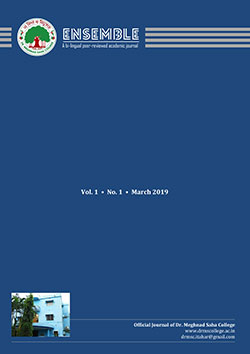Tribal Perception In Modern World By Transformed Social Perception Index: A Case Study Of Purulia District, West Bengal, India
Abstract
Tribal identity has always been under tremendous challenges since the introduction of the different facets of materialistic development. The outrage of this development affects the habits and habitats of the tribal communities. The tribes have lost their soil and presently live in a multi-ethnic society. This cultural assimilation with controls of Hinduism in the rural society brings forth the transition in the life and living of these indigenous people. The paper highlights first the socio-ecological characteristics of three tribal communities of Purulia district, namely, Santhal, Kharia Sabar, and Birhor. It further investigates possible transition and transformation in the social perception among the selected tribal communities by introducing the Transformed Social Perception Index (TSPI). For statistical validation, the index has been computed based on extensive field observation and a purposive sample survey of 600 tribal households of the Purulia district. The result exhibits that despite the processes of different agents of transformation, the tribal communities restore their age-old inherent social perception. The paper in fine prescribes some measures for holistic tribal development in the district.
Keywords: Social ecology, Santhal, Kharia Sabar, Birhor, Transition, Cultural assimilation
https://doi.org/10.37948/ensemble-2021-0202-a029
Views: 1318



